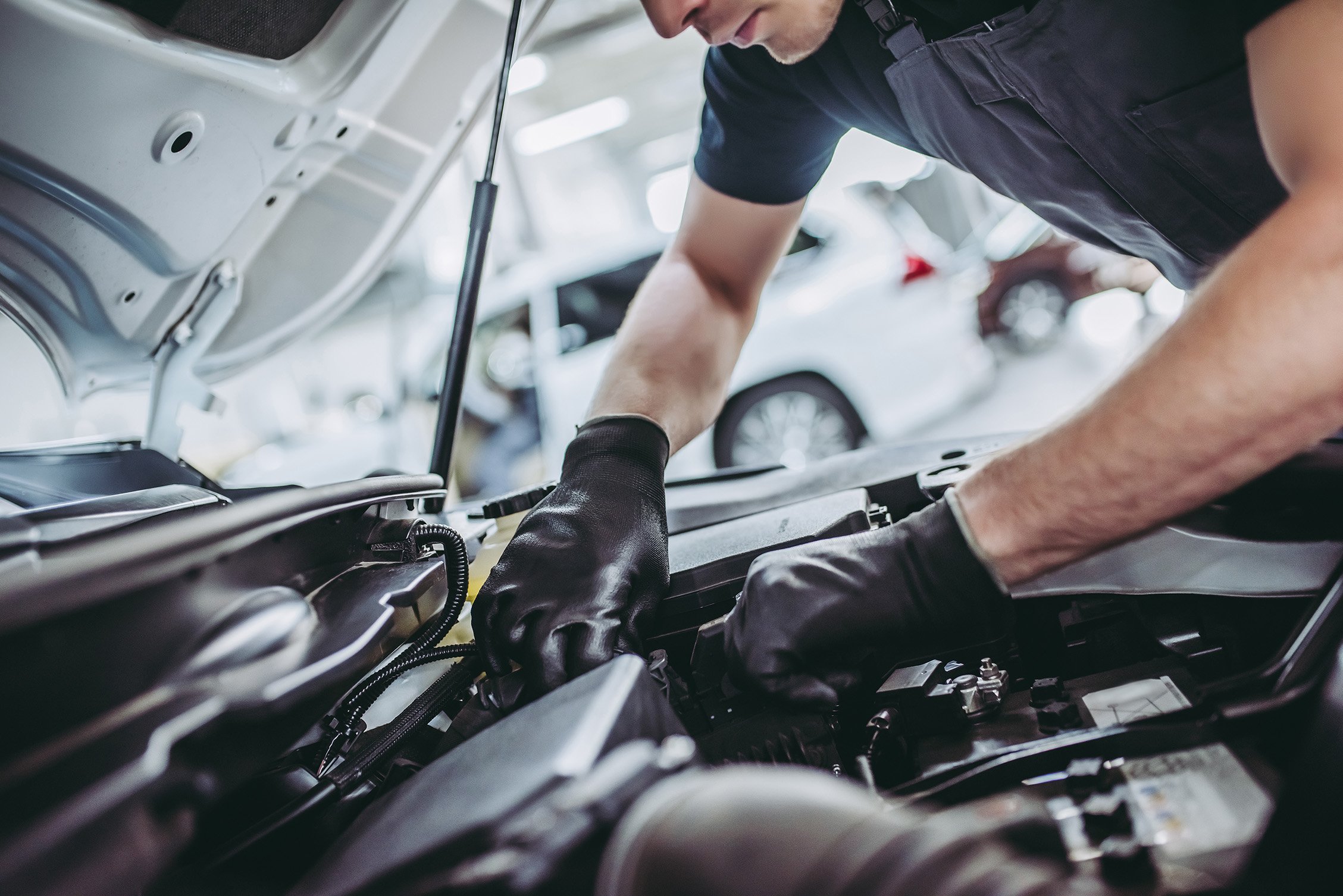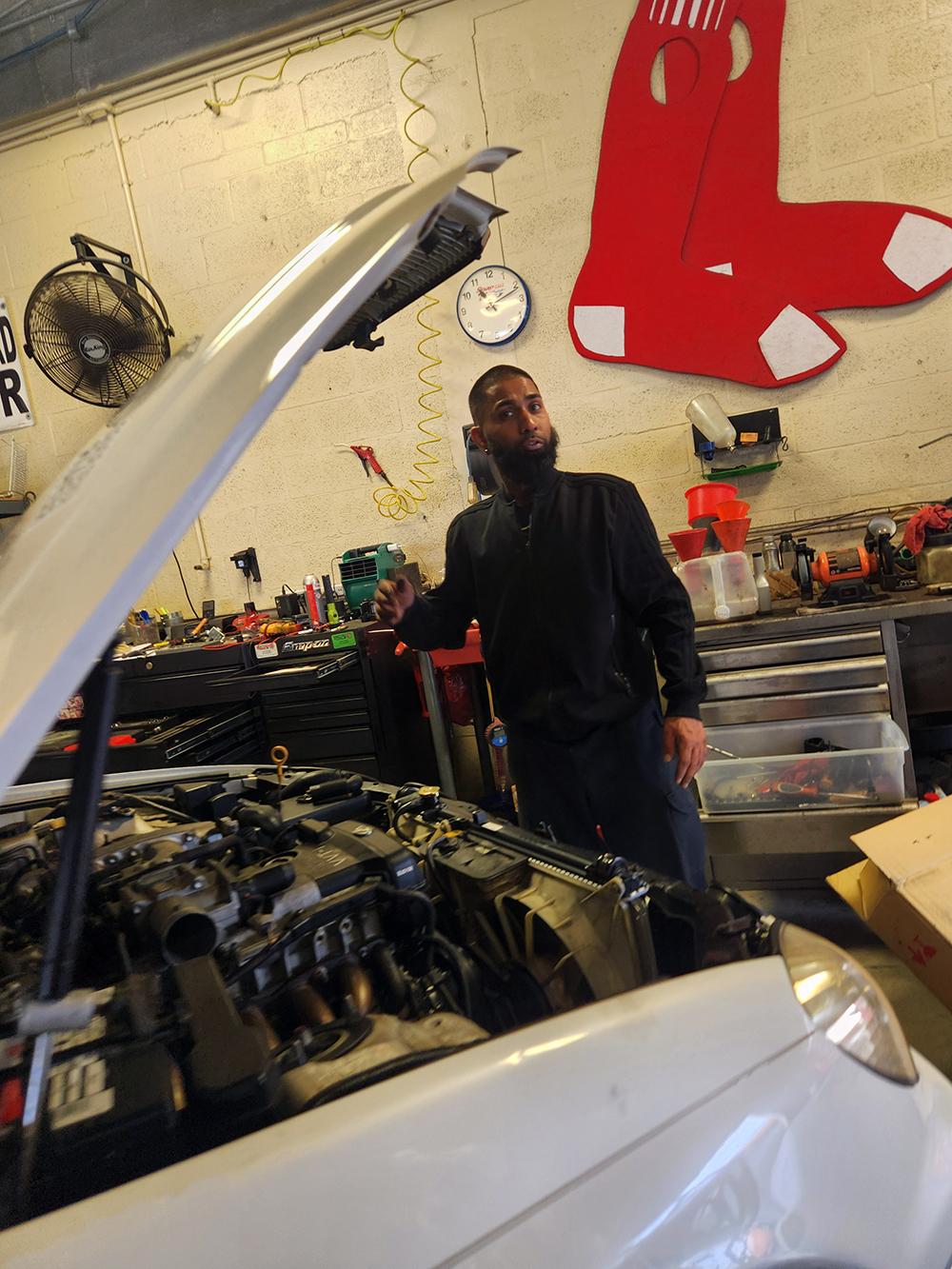All Categories
Featured
Your lorry's engine is among one of the most complex systems in your cars and truck, and every part plays an essential function in guaranteeing it runs smoothly. Amongst these, the timing belt is among the most crucial yet often overlooked parts of your engine. Liable for synchronizing the turning of the crankshaft and camshaft, the timing belt guarantees the engine's valves open and close at the correct times throughout the combustion process. It can result in serious engine damage if the timing belt fails. Below's why timing belt substitute is vital for your car's efficiency and longevity.
What Is a Timing Belt? The timing belt is a long, toothed rubber or composite belt that links the crankshaft to the camshaft(s) in an inner burning engine. Its task is to keep the engine's valves and pistons in sync, guaranteeing the engine runs effectively. The timing belt additionally regulates other important engine features like the water pump and the power guiding pump, relying on the lorry.
![]()
Without the correct timing, the engine's pistons and valves can collide, causing expensive and extensive damage. Therefore, changing the timing belt on schedule is just one of the best methods to guarantee your engine operates at its best and protect against costly repairs.
Why Timing Belt Replacement Matters. Avoiding Catastrophic Engine Damages: The most considerable danger of not changing a worn timing belt is engine failure. Replacing the timing belt at the suggested intervals is the ideal method to protect against such devastating damages, saving you from the anxiety and high price of engine fixings or substitute.
![]()
Keeping Engine Efficiency: A timing belt that remains in great problem ensures that all engine components work in ideal consistency. If the timing belt is used or stretched, it can trigger the engine to lose power, experience harsh idling, or struggle to begin. By replacing the timing belt routinely, you can maintain your engine running at peak performance, which assists keep ideal fuel economic climate and efficiency.
Preventing Unexpected Failures: A damaged timing belt can create your engine to stop quickly, possibly leaving you stranded in the middle of a journey. By changing your timing belt in a timely manner, you minimize the danger of unexpected break downs that can leave you in a dangerous or inconvenient circumstance. Routine upkeep decreases the opportunities of experiencing these type of disturbances, assisting you remain on the roadway longer without worrying about your engine failing.
Cost-efficient Upkeep: Timing belt substitute is a lot more economical than repairing or replacing an engine that's been damaged as a result of a timing belt failing. While the cost of replacing the timing belt may vary depending on your car and its place, it is far extra affordable than the expenses related to significant engine repair services or replacements. Replacing your timing belt at the suggested intervals can save you a significant amount of money over the future by avoiding damage to your engine.
When Should You Replace Your Timing Belt? The timing belt does not last for life, and many makers suggest replacing it in between 60,000 and 100,000 miles. Nevertheless, the precise timing depends on your automobile's make, design, and driving conditions, so it's vital to inspect your proprietor's manual for particular advice.
Indicators that your timing belt may need focus consist of uncommon engine noises (such as a piercing whining or ticking noise), trouble beginning the engine, or a decrease in engine performance. It's essential to have the timing belt examined by an expert mechanic. if you see any of these indications.
![]()
Verdict. The timing belt is a small yet vital component of your engine, and routine substitute is vital to preserving your lorry's efficiency and stopping pricey damages. By staying on top of timing belt upkeep, you'll ensure your engine operates effectively, avoid unexpected break downs, and safeguard your cars and truck from significant repair work. Watch on your vehicle's recommended timing belt substitute routine, and always consult with a trusted mechanic to keep your engine running efficiently for many years to come.
What Is a Timing Belt? The timing belt is a long, toothed rubber or composite belt that links the crankshaft to the camshaft(s) in an inner burning engine. Its task is to keep the engine's valves and pistons in sync, guaranteeing the engine runs effectively. The timing belt additionally regulates other important engine features like the water pump and the power guiding pump, relying on the lorry.

Without the correct timing, the engine's pistons and valves can collide, causing expensive and extensive damage. Therefore, changing the timing belt on schedule is just one of the best methods to guarantee your engine operates at its best and protect against costly repairs.
Why Timing Belt Replacement Matters. Avoiding Catastrophic Engine Damages: The most considerable danger of not changing a worn timing belt is engine failure. Replacing the timing belt at the suggested intervals is the ideal method to protect against such devastating damages, saving you from the anxiety and high price of engine fixings or substitute.

Keeping Engine Efficiency: A timing belt that remains in great problem ensures that all engine components work in ideal consistency. If the timing belt is used or stretched, it can trigger the engine to lose power, experience harsh idling, or struggle to begin. By replacing the timing belt routinely, you can maintain your engine running at peak performance, which assists keep ideal fuel economic climate and efficiency.
Preventing Unexpected Failures: A damaged timing belt can create your engine to stop quickly, possibly leaving you stranded in the middle of a journey. By changing your timing belt in a timely manner, you minimize the danger of unexpected break downs that can leave you in a dangerous or inconvenient circumstance. Routine upkeep decreases the opportunities of experiencing these type of disturbances, assisting you remain on the roadway longer without worrying about your engine failing.
Cost-efficient Upkeep: Timing belt substitute is a lot more economical than repairing or replacing an engine that's been damaged as a result of a timing belt failing. While the cost of replacing the timing belt may vary depending on your car and its place, it is far extra affordable than the expenses related to significant engine repair services or replacements. Replacing your timing belt at the suggested intervals can save you a significant amount of money over the future by avoiding damage to your engine.
When Should You Replace Your Timing Belt? The timing belt does not last for life, and many makers suggest replacing it in between 60,000 and 100,000 miles. Nevertheless, the precise timing depends on your automobile's make, design, and driving conditions, so it's vital to inspect your proprietor's manual for particular advice.
Indicators that your timing belt may need focus consist of uncommon engine noises (such as a piercing whining or ticking noise), trouble beginning the engine, or a decrease in engine performance. It's essential to have the timing belt examined by an expert mechanic. if you see any of these indications.

Verdict. The timing belt is a small yet vital component of your engine, and routine substitute is vital to preserving your lorry's efficiency and stopping pricey damages. By staying on top of timing belt upkeep, you'll ensure your engine operates effectively, avoid unexpected break downs, and safeguard your cars and truck from significant repair work. Watch on your vehicle's recommended timing belt substitute routine, and always consult with a trusted mechanic to keep your engine running efficiently for many years to come.
Latest Posts
The Shower Room Upgrade Every Detroit Home Deserves
Published Apr 19, 25
1 min read
Improved High Quality, Driven by Service
Published Apr 19, 25
1 min read
Auto Repair Services: Expert Vehicle Service You Can Trust !
Published Apr 19, 25
2 min read